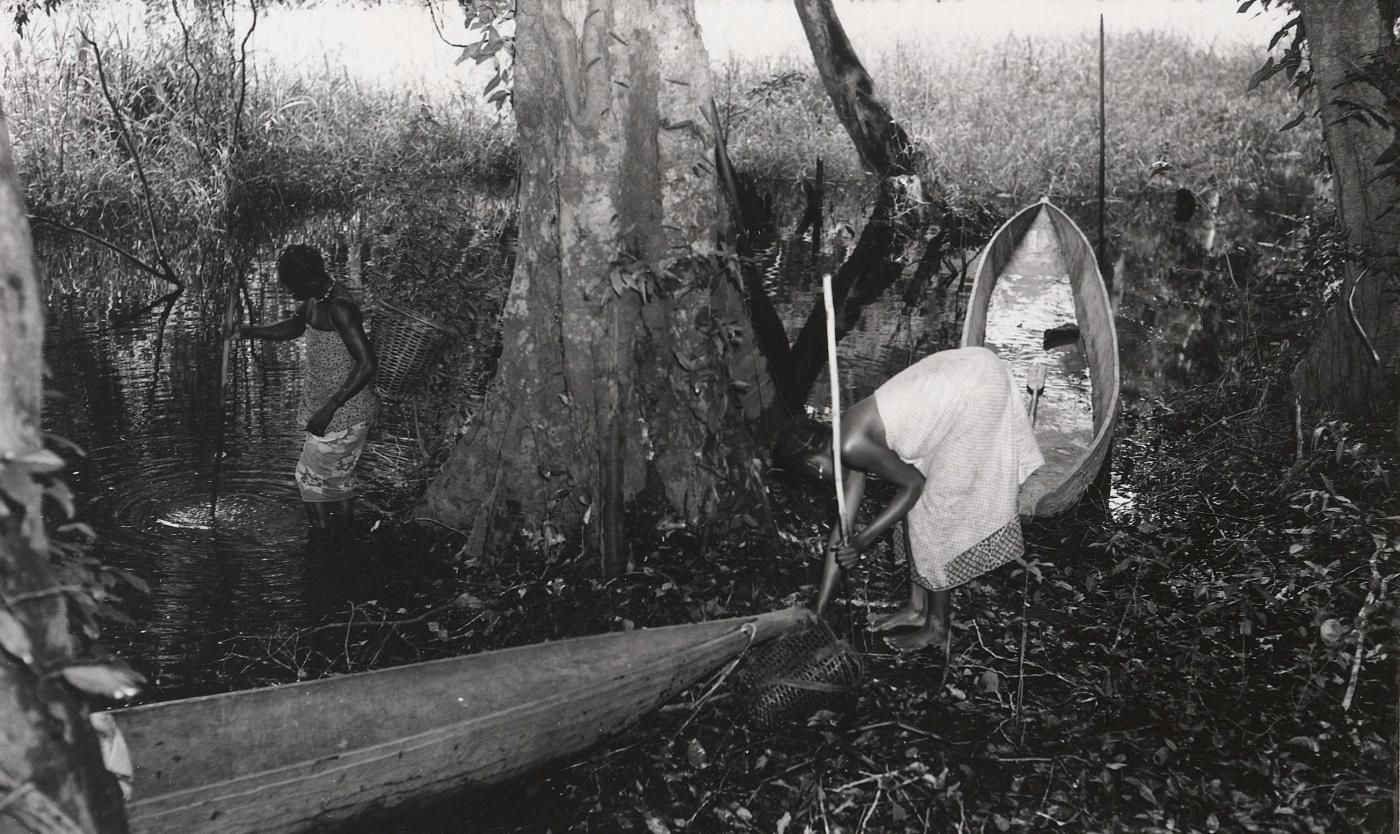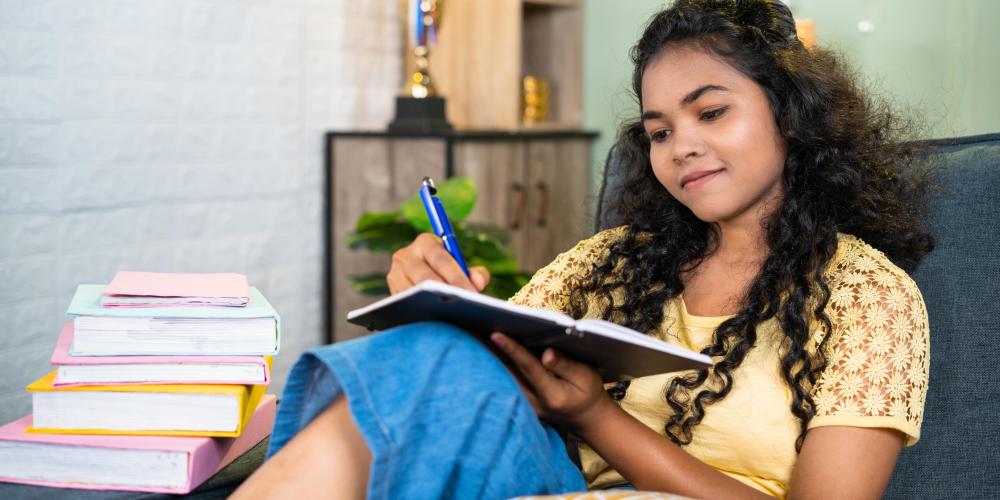
From January 30 to February 5, it's Poetry Week, a celebration of the literary genre in Flanders and the Netherlands. Poetry is alive and well at VUB, where our students wield a sharp pen. They share what poetry means to them and inspire even those unfamiliar with it with their vision and favorite poems.
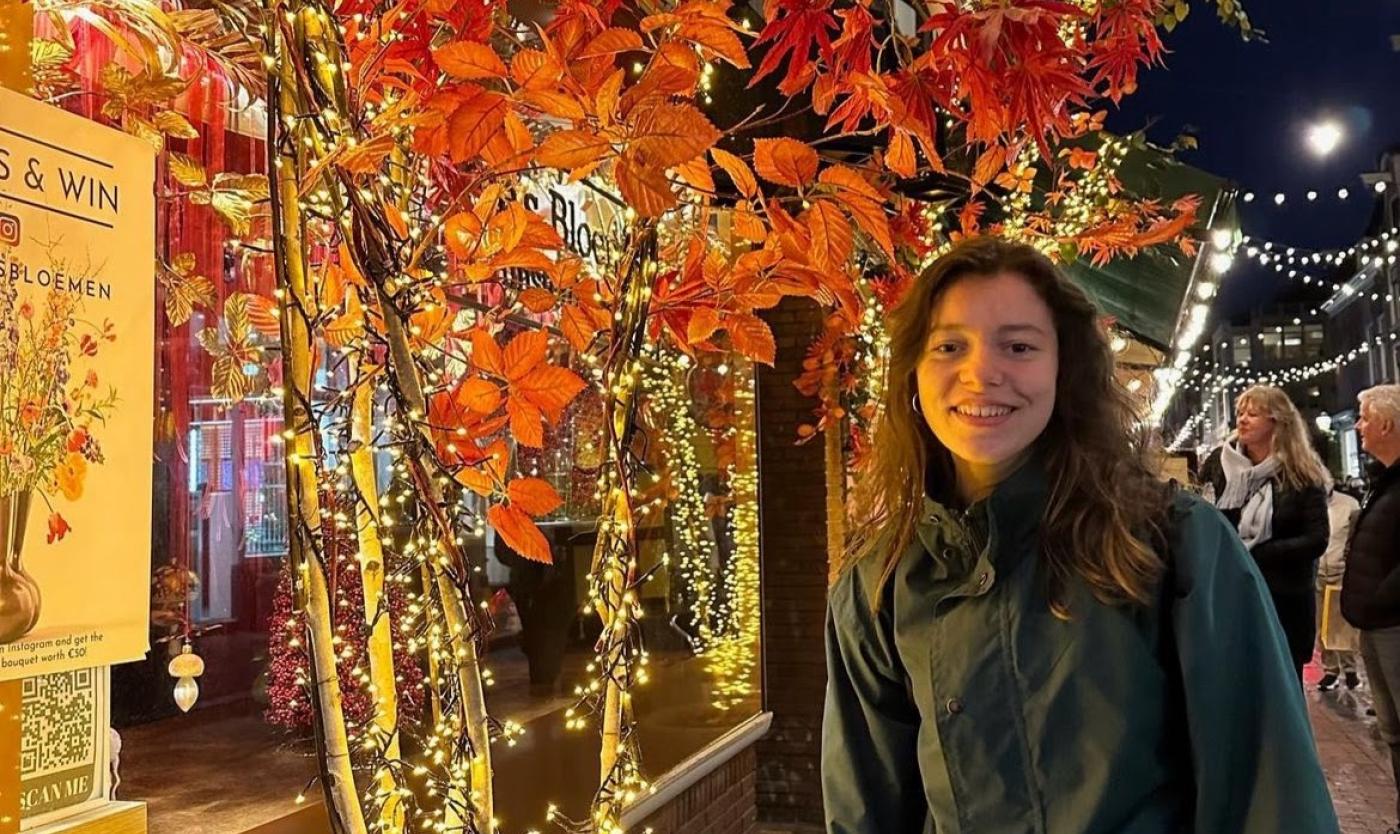
Gwijde Van Hauwermeiren
Gwijde Van Hauwermeiren (master Wijsbegeerte en Moraalwetenschappen)
"In my fifth year of secondary school, I discovered literature, poetry, and philosophy in my Dutch classes. That inspired me to start writing. My choice to study at VUB and my involvement in the Landjuweel stem from that discovery."
Lisa Heyvaert (master Taal- en Letterkunde Dutch-English)
"I always enjoyed Dutch and English, created original translations, and loved sentence analysis. The free spirit of VUB immediately attracted me."

Lisa Heyvaert
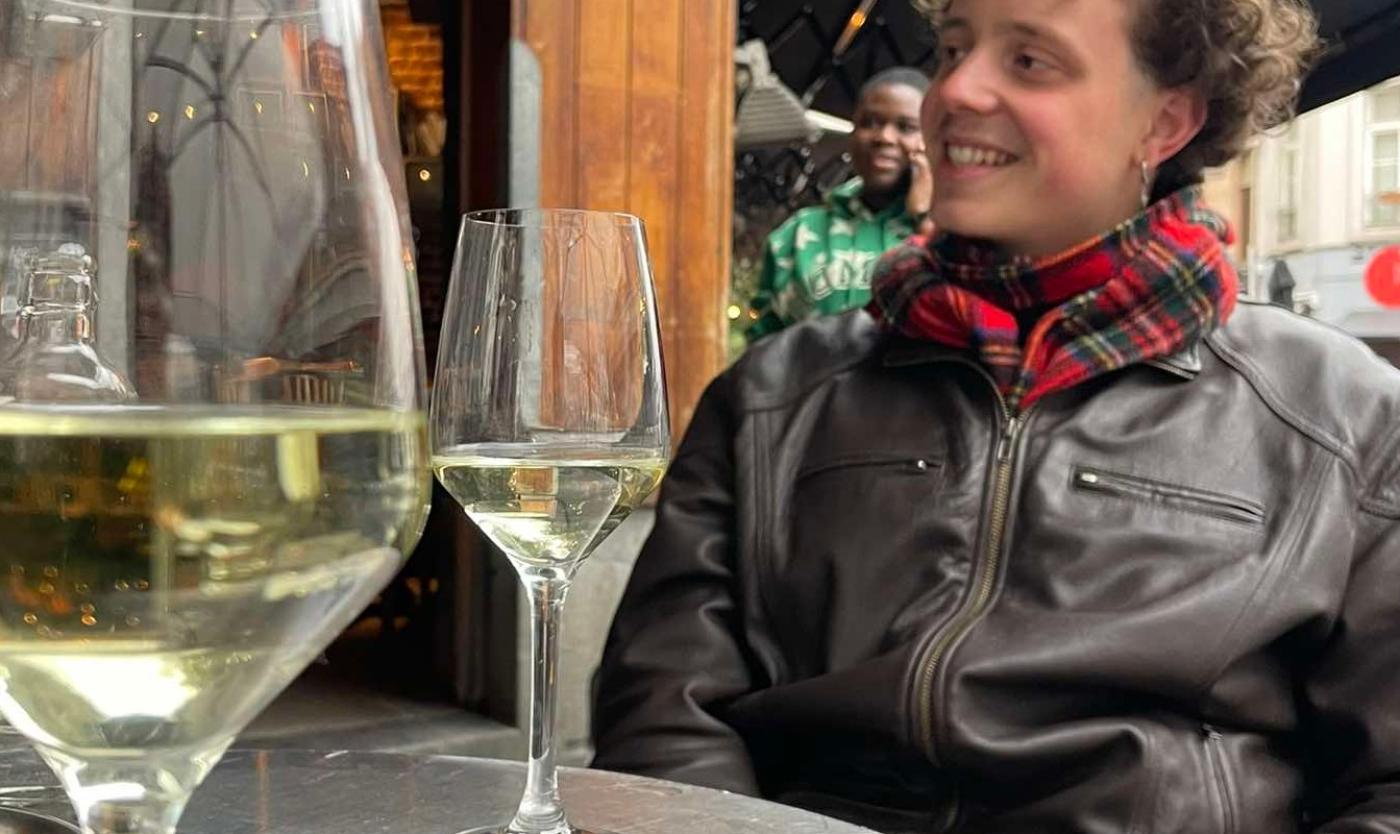
Lucca De Vriendt
Lucca De Vriendt (first bachelor Sociology)
"I am fascinated by human interactions and how society works. With my love for Brussels and the VUB vision, the choice was quickly made."
Parmida Irandoust (third bachelor Linguistics and Literary Studies)
"I dream of becoming a singer and I love literature. Thanks to my studies, I deepen my knowledge of literature, improve my English, and can write future songs."
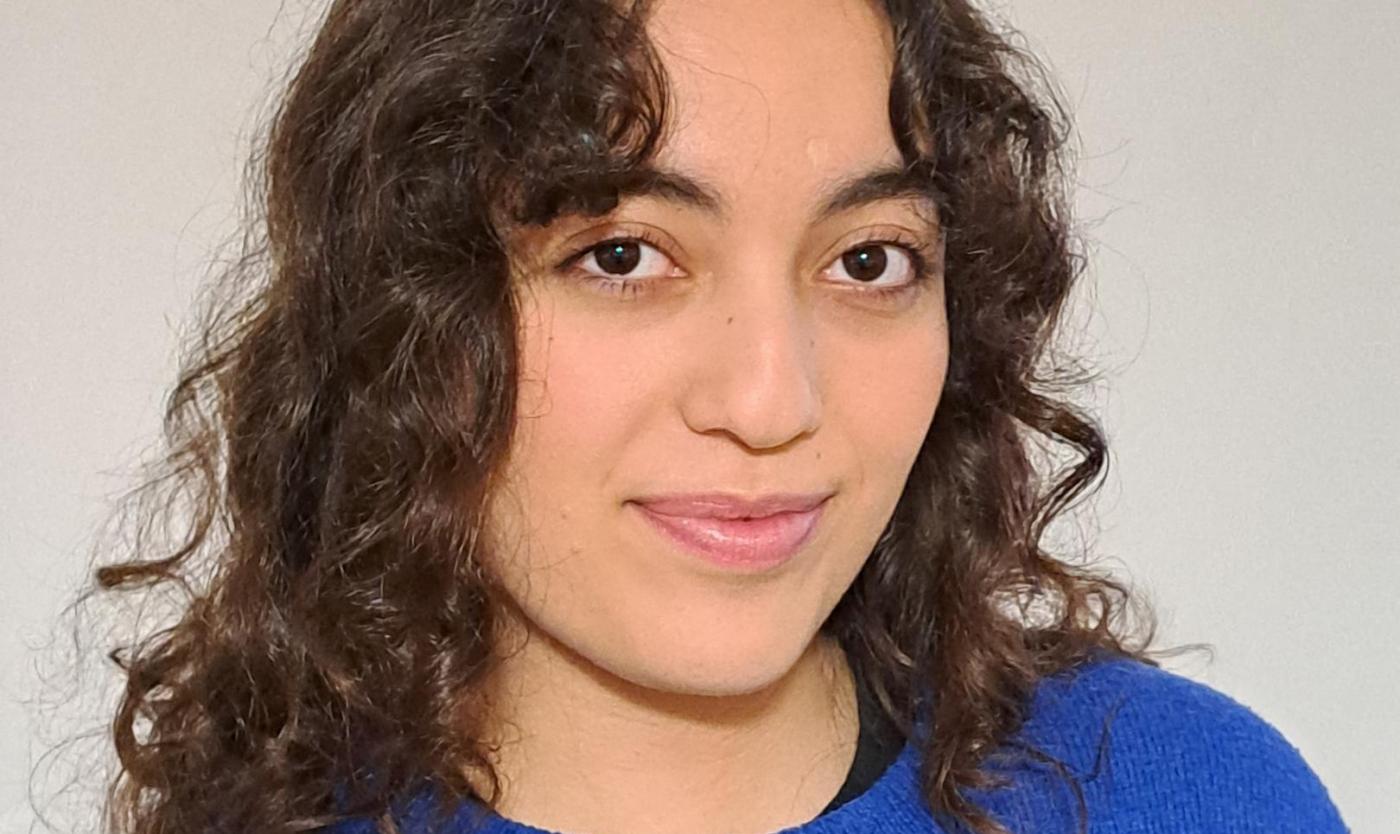
Parmida Irandoust

Stock image of a writing student
Ryme Kamli (second bachelor Taal- en Letterkunde English-German)
"Since my fifth year of secondary school, I knew I wanted to study languages. German literature fascinated me back then, and I wanted to explore the language further alongside English."
How and when did your interest in poetry begin?
Lisa: “At nine, I started loving to read, and writing quickly followed. In my last year of primary school, a teacher changed my poem, making me think I had no talent for poetry. It wasn’t until I was fourteen that I truly started writing poems.”
Lucca: “As a teenager, I loved writers like Lanoye and Verhulst. Music by Bowie, Dylan, and Reed also inspired me with the power of their words.”
Parmida: “As soon as I could write, I wrote stories and poems. It was my way of clearing my busy mind and expressing myself.”
Ryme: “I admired people who could play beautifully with language. When I won a poetry contest in secondary school, it gave me a boost to keep writing.”
What does poetry mean to you today? And to your generation?
Gwijde: “Our generation writes freely and personally, often about emotions and current themes.”
Lisa: “I try to evoke images and atmospheres. Poetry allows room for interpretation, making it relatable for readers.”
Lucca: “Poetry is vulnerability. It gives words to unspoken feelings and offers comfort or recognition.”
Parmida: “It frees my mind and the reader’s, through their own interpretation. Poetry feels right to me when it just clicks.”
Ryme: “Writing helps me understand myself and the world better. Reading poetry expands my empathy and gives me insight into others.”
Do you think the meaning of poetry has changed over time? If so, how?
Gwijde: “I think poetry has become a bit freer and more human. Before I started writing poetry, I thought it had to rhyme, that you couldn’t just write a poem. But when I started writing, inspired by books, I realized it’s not that hard—you can just write what you want.”
Lisa: “Compared to the past, there’s much more freedom in terms of genre and authorship. Poetry is now more than just words on paper—think of the many forms of spoken word. The internet also provides an accessible platform for emerging poets to share their work.”
Lucca: “Poetry used to be less accessible, and it was harder to come into contact with it. Now, more and more people from my generation discover poetry through social media, where I see that short, accessible poems are particularly popular.”
Parmida: “I think poetry used to sound more prestigious than it does now. We live in an era where so much art is being produced in all different disciplines.”
Ryme: “There are now more forms of poetry—we experiment more, partly thanks to the internet. I think many people see poetry as inaccessible, and I understand why. What I see in poetry isn’t necessarily what someone else sees in it. And that’s exactly what makes it beautiful—you don’t have to fully understand it to find it meaningful or to connect with it.”
Are there specific people who inspire you in poetry, and why?
Gwijde: “Friends and writers like Rilke, Dickinson, and Bukowski, especially when it comes to existential themes.”
Lisa: “My inspiration comes from my own experiences but also from imagined situations.”
Lucca: “Jim Morrison’s absurd style leaves a lot of room for interpretation and reflection.”
Parmida: “Love in all its forms inspires me—from family to missed opportunities.”
Ryme: “Dutch isn’t my native language. I speak it well, even better than my mother tongue, French, but I still feel like I can’t fully express certain things. In secondary school, there was a classmate who could do that beautifully. I thought that was really cool and inspiring, and I wanted to be able to do that too.”
What is the power of poetry for you?
Gwijde: “Making the existential and human experience tangible through language.”
Lisa: “Poetry is a puzzle with self-painted pieces; recognition gives it strength.”
Lucca: “It’s an accessible way to express yourself using ordinary words.”
Parmida: “Poetry makes deep emotions felt with simple words, showing the beauty of life.”
Ryme: “Poetry is in everything—words, images, movement. It’s a way to see beauty. I’ve often felt bad or misunderstood, and then I read something and realize I’m not alone.”
For people who don’t know much about poetry yet, what would be a good first introduction?
Lucca: “I’d definitely recommend the Instagram or Facebook account @didalmi. They regularly post short, Dutch-language poems linked to current events.”
Ryme: “There are many poetry collections, often with a specific theme, so find something that speaks to you. Simple poetry isn’t necessarily bad poetry, and good poetry doesn’t have to be full of difficult words. I get a daily poem from the websites Poem-a-Day and Poetry Foundation, which can be a great source of inspiration.”
Do you want to achieve something with your writing? If so, what?
Gwijde: “It feels good to share my poems with others and let them experience my words. But sometimes, a poem’s meaning changes when you show it to others, and you have to accept that.”
Lisa: “Five years ago, my collection Lieveheersbeestje was published by Het Punt. Back then, I thought I’d release something new soon, but now I think it’s important to let things unfold naturally, without a specific goal. My style is still evolving, and I want to figure out what works for me—especially since ‘good poetry’ means something different to everyone. Of course, I hope that if I do share something again, it will have meaning for at least some people.”
Lucca: “The reaction I love most when I share my poems is when someone finds them relatable. I hope that by exposing my own feelings, I can help others realize they’re not alone—that it’s okay to feel what they feel.”
Parmida: “I’m a playwright and have already written a full play that is now in pre-production. I also want to write stories for film, theater, and books. My goal is to bring more ‘authenticity’ to the art industry.”
Ryme: “I would love to publish something, but I want to improve first. I feel a bit insecure about my poetry because I don’t get direct feedback. I let my friends read it, but we mostly give each other compliments—I’d love for someone to just tell me what could be better.”
Finally: What is your favorite poem?
Gwijde: I Died for Beauty – Emily Dickinson
Lisa: Dan pas – Linda Vogelesang
Lucca: Tape Noon – Jim Morrison
Parmida: Awkward Comparisons – Rumi & Birds of a Feather – Billie Eilish
Ryme: Death Fugue – Paul Celan
The Landjuweel is a poetry competition between several Dutch and Flemish universities. A team of students from the Faculty of Arts and Philosophy collaborates to write a large collective poem, which they will present to a broad audience in the spring. They are guided by the Arts and Philosophy Circle.The students ensure that the writers learn to write in collaboration with others and refine their poetry skills. This year's competition will take place on February 28 in Amsterdam. Student Gwijde is responsible for organising the event on behalf of VUB.
Follow the Instagramaccount.
